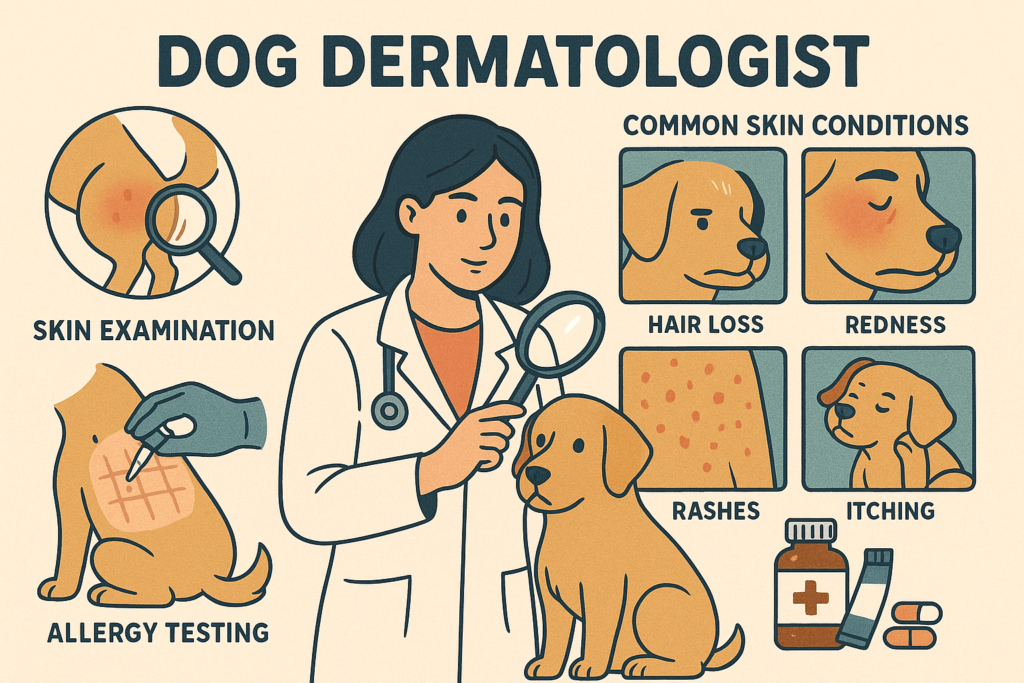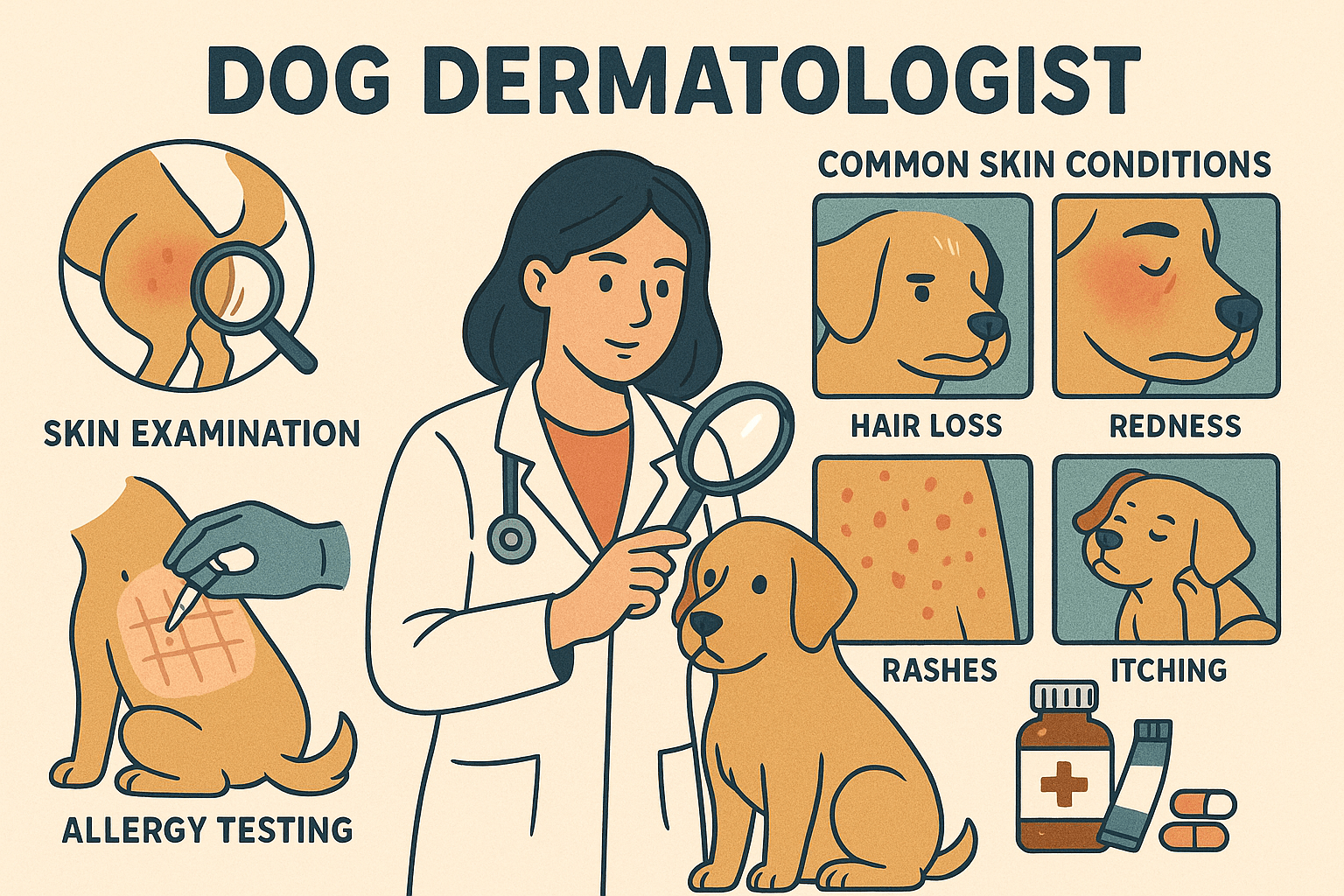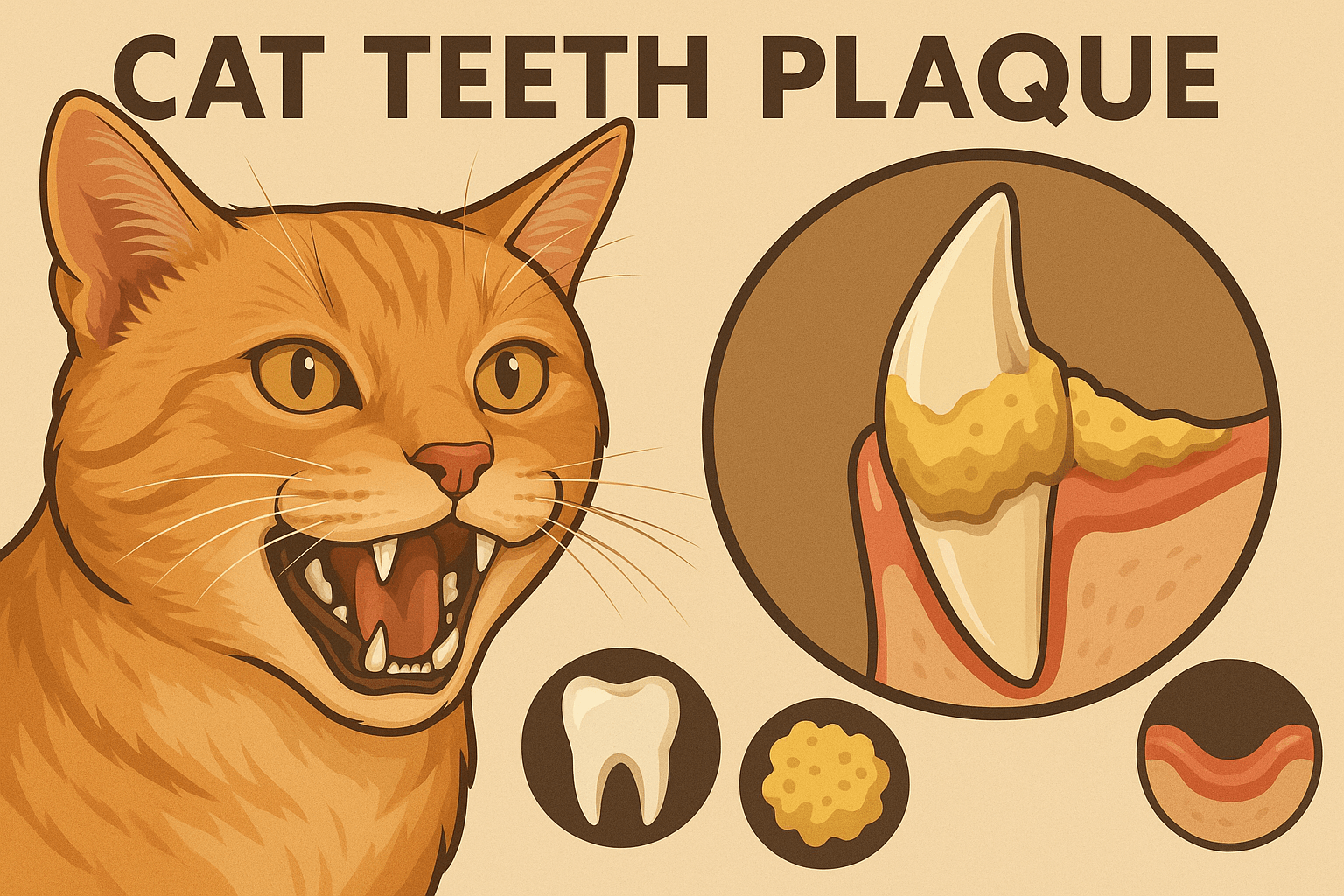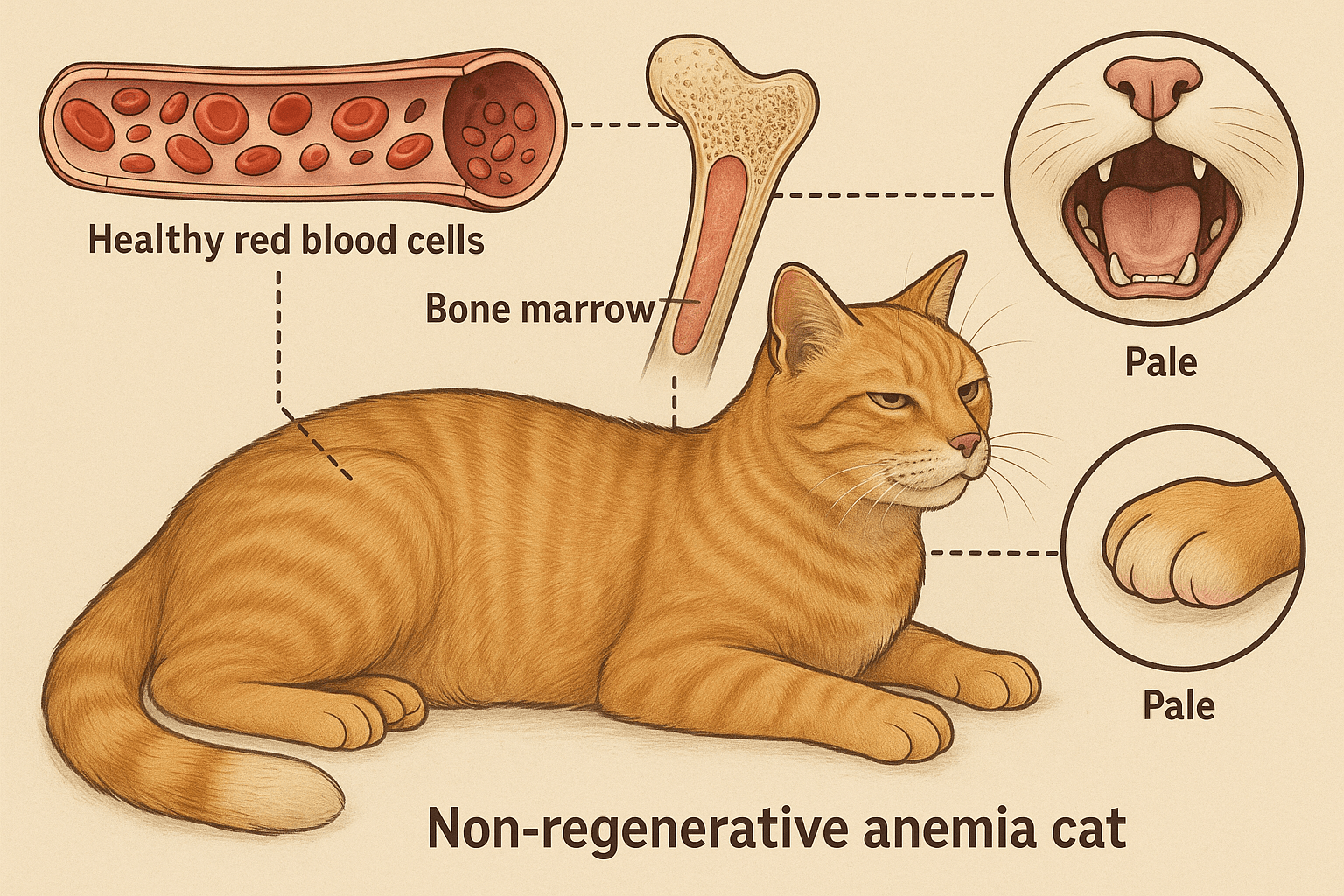Understanding the Role of a Dog Dermatologist
When your beloved canine companion starts showing signs of skin irritation, excessive scratching, or hair loss, it’s time to consider consulting a dog dermatologist. These specialized veterinarians focus on diagnosing and treating a wide range of skin, coat, ear, and nail issues that affect dogs. From allergies to infections, a dog dermatologist can provide expert care tailored to your pet’s unique needs. In this blog post, we’ll explore what a dog dermatologist does, common conditions they treat, and how their expertise can improve your dog’s quality of life. Whether you’re a first-time dog owner or a seasoned pet parent, understanding the importance of specialized care is essential for keeping your furry friend happy and healthy.
Common Skin Conditions Treated by Dog Dermatologists
Dog dermatologists are equipped to handle a variety of skin-related issues that can cause discomfort and distress for your pet. Here are some of the most common conditions they diagnose and treat.
Allergies:
Dogs can suffer from environmental, food, or flea allergies, leading to itching, redness, and inflammation. A dermatologist can identify triggers and create a management plan.Hot Spots:
These painful, inflamed areas on a dog’s skin often result from excessive licking or biting due to underlying issues like allergies or infections.Fungal Infections:
Conditions like ringworm can cause patchy fur and scaly skin. Dermatologists use specialized tests to confirm diagnoses and recommend treatments.Parasitic Infestations:
Fleas, ticks, and mites can wreak havoc on a dog’s skin. A dermatologist can prescribe effective solutions to eliminate these pests.Autoimmune Disorders:
Rare but serious conditions like pemphigus can cause blisters and sores. Dermatologists work closely with general vets to manage these diseases.
With their expertise, dog dermatologists can address both minor irritations and complex conditions, ensuring your pet feels comfortable and itch-free.

Signs Your Dog May Need a Dermatologist
If your dog is exhibiting unusual behaviors or physical symptoms, it might be time to consult a specialist. Here are some signs that indicate your dog could benefit from seeing a dermatologist.
Excessive Scratching or Licking:
Persistent scratching or licking can signal an underlying issue, such as allergies or skin infections.Hair Loss or Bald Patches:
Unexplained shedding or bald spots may point to hormonal imbalances, parasites, or other dermatological problems.Red, Swollen, or Scaly Skin:
Visible changes in your dog’s skin texture or color are often early warning signs of irritation or infection.Unpleasant Odor:
A strong smell coming from your dog’s skin or ears could indicate bacterial or yeast infections.Chronic Ear Infections:
Repeated ear issues, such as discharge or swelling, may require specialized treatment beyond regular vet care.
Recognizing these symptoms early allows you to seek professional help sooner, improving your dog’s chances of a speedy recovery.
Check this guide 👉Worm Under Dog Skin: Best 7 Expert Tips!
Check this guide 👉Dog Skin Conditions: Best 7 Expert Tips!
Check this guide 👉Understanding Dog Sensitive Skin: Best 7 Expert Tips!
Benefits of Consulting a Dog Dermatologist | Conditions They Treat |
|---|---|
Accurate diagnosis using advanced testing | Allergies (food, environmental, flea) |
Tailored treatment plans for chronic issues | Hot spots and bacterial infections |
Expertise in managing autoimmune disorders | Fungal infections like ringworm |
Long-term strategies for allergy management | Parasitic infestations (fleas, mites) |
Improved quality of life for your dog | Chronic ear infections and skin diseases |
How to Prepare for a Visit to the Dog Dermatologist
A trip to the dog dermatologist requires preparation to ensure the appointment is productive and stress-free for both you and your pet. Follow these steps to make the most of your visit.
Gather Medical Records:
Bring any relevant medical history, including previous treatments or medications, to help the dermatologist understand your dog’s condition.Note Symptoms and Triggers:
Keep a journal of when symptoms occur, potential triggers, and any patterns you’ve noticed. This information is invaluable for diagnosis.Bathe Your Dog Beforehand (if advised):
Some dermatologists may recommend bathing your dog before the appointment to remove dirt or allergens from the coat.Bring Samples (if applicable):
If your dog has visible parasites or lesions, the dermatologist may ask you to bring samples for testing.Prepare Questions:
Write down any questions or concerns you have about your dog’s condition to discuss during the consultation.
Proper preparation ensures the dermatologist has all the necessary information to provide the best possible care for your furry friend.
Treatment Options Offered by Dog Dermatologists
Dog dermatologists employ a range of treatments to address various skin conditions effectively. Here are some of the most common approaches they use.
Medicated Baths and Topical Treatments:
Special shampoos and creams can soothe irritated skin and reduce inflammation caused by allergies or infections.Dietary Changes:
For food-related allergies, dermatologists may recommend hypoallergenic diets or elimination trials to identify problematic ingredients.Antibiotics and Antifungals:
Oral or topical medications are prescribed to combat bacterial or fungal infections affecting the skin.Allergy Shots (Immunotherapy):
Customized allergy vaccines can desensitize your dog to specific allergens over time, reducing symptoms.Behavioral Interventions:
Dermatologists may suggest strategies to prevent excessive licking or scratching, such as using protective collars or calming aids.
These treatment options are designed to target the root cause of your dog’s discomfort, promoting long-term healing and relief.
Preventive Measures to Protect Your Dog’s Skin
Prevention is key to maintaining your dog’s skin health and avoiding costly treatments down the line. Here are some proactive steps you can take to keep their coat and skin in top condition.
Regular Grooming:
Brushing your dog’s coat removes loose fur and prevents matting, which can trap moisture and irritate the skin.Balanced Diet:
Feed your dog high-quality food rich in omega-3 fatty acids to promote healthy skin and a shiny coat.Flea and Tick Prevention:
Use vet-recommended products to protect your dog from parasites that can cause skin irritation.Limit Exposure to Irritants:
Avoid exposing your dog to harsh chemicals, such as cleaning products or pesticides, that could trigger reactions.Routine Check-Ups:
Schedule regular vet visits to catch potential skin issues early before they escalate.
By incorporating these habits into your routine, you can significantly reduce the risk of skin problems in your dog.
Understanding Food Allergies in Dogs
Food allergies are a common yet often misunderstood cause of skin issues in dogs. Identifying and managing these allergies requires patience and collaboration with a dermatologist.
Common Culprits:
Proteins like beef, chicken, and dairy are frequent triggers for food allergies in dogs.Symptoms to Watch For:
Itching, ear infections, and gastrointestinal upset often accompany food-related allergies.Elimination Diets:
A dermatologist may recommend feeding your dog a limited-ingredient diet to pinpoint the offending ingredient.Hypoallergenic Options:
Prescription diets formulated with hydrolyzed proteins can help manage food sensitivities.Long-Term Management:
Once identified, avoiding the allergen is crucial to preventing future flare-ups.
Working closely with a dermatologist ensures accurate diagnosis and effective management of food allergies.
The Emotional Impact of Skin Conditions on Dogs
Skin conditions don’t just affect your dog physically—they can also take a toll on their emotional well-being. Addressing these issues promptly is essential for restoring their happiness and confidence.
Increased Anxiety:
Constant itching or pain can make your dog feel restless and anxious, impacting their behavior.Social Withdrawal:
Dogs with visible skin issues may avoid interacting with other animals or people due to discomfort or embarrassment.Decreased Activity Levels:
Painful skin conditions can discourage your dog from engaging in play or exercise, leading to lethargy.Strained Bond with Owners:
Behavioral changes caused by skin issues can strain the relationship between dogs and their owners.Restoring Quality of Life:
Effective treatment not only heals the skin but also restores your dog’s zest for life and strengthens your bond.
Addressing skin conditions holistically ensures your dog feels loved, supported, and comfortable once again.
Frequently Asked Questions About Dog Dermatologists
What is a dog dermatologist?
A dog dermatologist is a veterinarian who specializes in diagnosing and treating skin, ear, and nail conditions in dogs.
Do I need a referral to see a dermatologist?
In most cases, a referral from your primary veterinarian is required to schedule an appointment with a specialist.
How much does a visit cost?
Costs vary depending on the complexity of the case, but initial consultations typically range from $100 to $300.
Can a dermatologist cure my dog’s allergies?
While allergies cannot always be cured, dermatologists can develop effective management plans to minimize symptoms.
How long does treatment take?
Treatment duration depends on the condition being treated, ranging from weeks for acute issues to months or years for chronic conditions.
Investing in Your Dog’s Skin Health
A dog dermatologist plays a vital role in addressing complex skin issues that go beyond the scope of general veterinary care. By seeking specialized treatment, you can alleviate your dog’s discomfort, prevent recurring problems, and improve their overall well-being. Whether your pet is dealing with allergies, infections, or mysterious skin irritations, a dermatologist’s expertise ensures they receive the highest standard of care. Remember, your dog’s skin health is just as important as their physical and emotional well-being—investing in professional support today can lead to a happier, healthier tomorrow for your furry companion.
Understanding Cat Teeth Plaque: Best 7 Expert Tips! Discover expert advice on preventing plaque, maintaining your cat’s oral health, and ensuring a happy, healthy feline companion.
How Do Cats Cool Down? Best 7 Expert Tips! Discover how cats naturally regulate their body temperature and learn expert advice to keep your feline cool, comfortable, and safe in hot weather.
Cat Chicken Allergy: Best 7 Expert Tips! Discover expert advice on identifying, managing, and preventing chicken allergies in cats for a healthier, happier feline companion.
Understanding Non-Regenerative Anemia in Cats: Best 7 Tips! Learn causes, symptoms, and treatment options to support your cat’s health and manage this condition effectively.





